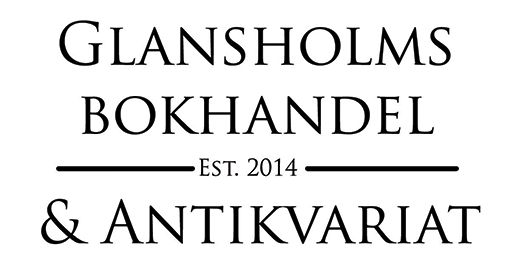
Våra experter hjälper dig eftersöka "Organizing technologies" - utan extra kostnad
Glansholms Antikvariat har många tusentals böcker på lager - och över 10 miljoner böcker hos våra underleverantörer. Vi har en unik service till dig - efterlys boken och våra experter eftersöker den åt dig och återkommer inom några dagar.
Vad kommer boken att kosta? Normalpriserna för efterlysta böcker ligger mellan 120 kr och 380 kr beroende på utgåva, skick, tillgång, etc. Vi kan inte lämna ett pris förrän vi bedömt det enskilda exet. Har vi boken inne kan det ibland bli billigare och rariteter har ofta ett högre värde, att en bok är kostsam hindrar oss inte från att eftersöka och reservera den för våra kunder.
Är en efterlysning bindande? Nej, naturligtvis får du se bild, pris och skickbedömning innan du bestämmer dig. Men en efterlysning innebär ofta att vi låter ta in boken på lager och vi är därför naturligtvis tacksamma om du är seriöst intresserad och återkommer när vi kontaktar dig via epost.
Vänligen gör en efterlysning per bok! Varje bok behöver ett eget referensnummer för att vi ska kunna hantera efterlysningen.
Vi behandlar inte efterlysningar av ordinarie kurslitteratur.
 Efterlys "Organizing technologies"
Efterlys "Organizing technologies"Organizing technologies
Av Alexander Styhre, Thomas Kalling, Ulla Eriksson-Zetterquist

|
Bok- presentation: |
Organizing technologies |
|
Författar- presentation: |
Alexander Styhre |

|
|
Organization theory and management studies tend to underrate the importance of technological resources in accomplishing organized activities. In organizations, a wide variety of technologies are mobilized on a day-to-day basis to accomplish organized activities. Some of these technologies are subject to continuous discussions and controversies while others are taken for granted or simply ignored.
Organizing Technologies presents theories about technology and its recursive ability to both shape its users and to be shaped by its very use, outlining an analytical model where technologies serve three broad functions within organizations: to produce goods and services, to enhance administrative work, and to connect and co-align organizations within networks, supply chains, or distribution systems.
Om författarna
J. C. Spender, professor at ESADE, Barcelona. Ulla Eriksson-Zetterquist is Associate Professor of Management Studies, Gothenburg Research Institute, School of Business, Economics, and Law, University of Gothenburg, Sweden. Thomas Kalling is Professor of Strategy and Information Technology, and Director of the Institute of Economic Research at Lund University School of Economics and Management, Sweden. Alexander Styhre is Professor and Chair of Organization Theory and Management, School of Business, Economics, and Law, University of Gothenburg, Sweden.
Recensioner
”The authors have pulled together a rich review and commentary on much written about technology over the last 200 years, providing us with an invaluable resource and a guiding hand. They recapture the oft-forgotten distinction between productive and administrative technologies to help us view recent changes in the global workplace.
This book is a God-send for those like teachers, politicians, journalists and managers who find themselves obliged to comment on today’s technology-shaped events but lack the background to achieve their own balance.”
J. C. Spender, professor at ESADE, Barcelona
Utgåvor
Organization theory and management studies tend to underrate the importance of technological resources in accomplishing organized activities. In organizations, a wide variety of technologies are mobilized on a day-to-day basis to accomplish organized activities. Some of these technologies are subject to continuous discussions and controversies while others are taken for granted or simply ignored.
Organizing Technologies presents theories about technology and its recursive ability to both shape its users and to be shaped by its very use, outlining an analytical model where technologies serve three broad functions within organizations: to produce goods and services, to enhance administrative work, and to connect and co-align organizations within networks, supply chains, or distribution systems.
Bok: 117479
 Anmäl textfel
Anmäl textfel





